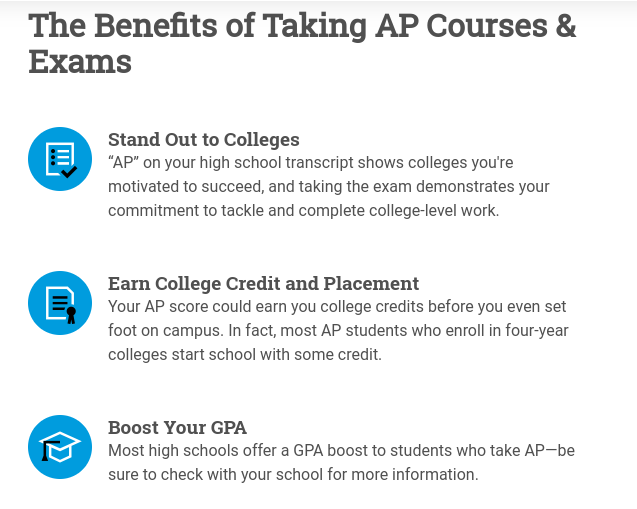Observer Opinion: An Advanced Placement inconvenience
Photo Courtesty of College Board Website
Taking AP Exams have many benefits for students such as receiving college credit and standing out to colleges. However, the early registration deadline places unnecessary limitations on students’ abilities to take exams.
December 2, 2022
Every fall, high school students across the country are forced to make a choice: whether or not to register for AP Exams. Along with it being the start of a new month and an early action college application deadline, Nov. 1 marks the deadline to register for AP Exams. With this deadline occurring so early in the school year, students are forced to make premature decisions regarding whether or not to take exams.
The AP Exam program, despite the criticism it receives, remains a popular way for students to not only get college credit, but to show colleges that they are able to get high scores on college-level exams. AP Exams are given by the College Board in the spring as “final” exams for courses students have spent a year taking. In many instances, students can get college credit for receiving a score of a three, four or five. While this is a great opportunity for students, the College Board should push the deadline for registering for AP Exams until later in the school year.
According to Total Registration, in 2019, College Board made over $1.1 billion in revenue from AP Exams. While the College Board is considered a “not-for-profit,” they are essentially a monopoly that makes huge profits, since virtually no other company offers testing like the College Board does. Because there is no other option, students are practically forced to pay the College Board’s extremely high prices to potentially receive college credit and give themselves a leg up for college applications.
Currently, if students miss the November deadline, they are hit with an additional $40 added onto the original $97 cost of the exam. Additionally, if they register in time but then decide to opt out later in the year, students are forced to pay another $40 cancellation fee. These fees, along with the unnecessarily high price of the exam, force students to seriously consider if they have the potential to do well on the exam to make the high cost worthwhile.
With the deadline being so early in the year, many students do not have the information necessary to make an informed decision. While by November students have been exposed to the curriculum and topics taught in the course they are taking, many AP classes do not start focusing on the actual exam until much later in the year. Therefore, many students may be unsure of whether or not they could be successful on the exam in the spring. A lot of the time, if students sign up for an exam by the deadline and later realize that they would not likely do well on the exam, they still decide to take the exam to avoid paying a late cancellation fee.
Another concern with the early registration deadline is that high school seniors are forced to make exam decisions without knowing if the college they will end up committing to accepts AP credit. As a result, many seniors sign up and pay to take exams preemptively with the chance that they might receive credit from the school they end up attending. However, many later find out they cannot receive credit due to the school they attend or the score they receive.
Many seniors do not decide on a college until right before AP exam dates, so it would not be feasible to have a registration deadline that late. However, many seniors apply via early decision, and for many schools, these decisions come out during mid-December. If the College Board moved the registration deadline to the end of December or even the beginning of January, they would give students who are applying via early decision the opportunity to register for exams after they find out about their early decision school.
So, should high school students register to take AP Exams despite the early registration deadline? My answer: yes. Despite the potential that they might waste their time and money, the potential of earning college credit and receiving a high score to put on their college applications is too good to pass over.
But, with this in mind, the College Board needs to push the AP Exam registration deadline to later in the year to allow students to have more exposure to their AP classes and seniors to potentially find out about where they are going to college to avoid premature decisions that result in students taking unnecessary exams, or spending unnecessary money.



